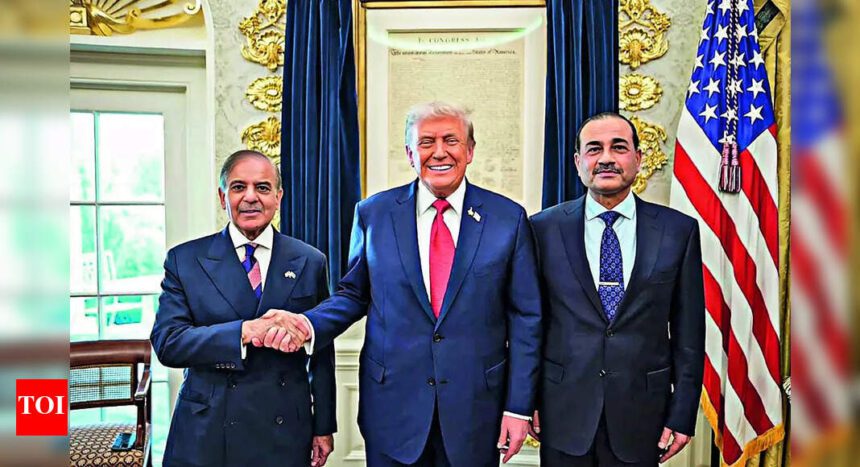Pakistan Prime Minister Shehbaz Sharif delivered a contentious speech at the United Nations on Friday, in which he expressed Pakistan’s readiness for dialogue with India while simultaneously claiming a significant military achievement during Operation Sindoor. He alleged that Pakistan had successfully downed Indian jets and “delivered a bloody nose” to India.
However, he did not address the losses incurred by Pakistan, including the destruction of several warplanes and significant damage to almost all of its strategic air bases by the Indian Air Force during the operation, which began on May 7.
Sharif’s remarks included an unexpected endorsement of U.S. President Donald Trump, whom he referred to as a “man of peace.” He supported Trump’s assertions regarding mediation efforts that allegedly facilitated a ceasefire, a claim that India has consistently rejected. “Though in a position of strength, Pakistan agreed to a ceasefire facilitated by President Trump’s bold and visionary leadership,” Sharif asserted in the speech.
In contrast, Indian Prime Minister Narendra Modi has stated in Parliament that no nation requested India to halt its operations during Operation Sindoor.
In a separate context, the market reaction to Trump’s proposed tariffs on imported “branded or patented” pharmaceuticals created uncertainty. On Friday, pharmaceutical stocks in India declined by 1% to 5%. While Trump’s tariff was anticipated—having been discussed openly since April—the timing caught many off guard. Trump’s previous threats included tariffs as high as 200% on imported pharmaceuticals.
The impact on India largely hinges on how “branded” is defined, as the U.S. is the largest market for Indian pharmaceuticals, purchasing around $10 billion in drugs last year, primarily low-cost generics. Experts believe off-patent formulations, even if branded, may be exempt from the new tariff, but detailed enforcement rules from the U.S. are awaited.
As part of his administration’s push for drug self-sufficiency, Trump has made clear that ensuring U.S. independence from foreign pharmaceuticals has been a priority. Currently, the U.S. produces 40% of its completed drugs, while only 10% of active pharmaceutical ingredients (APIs) are domestically sourced. This context explains the exemptions provided to firms establishing production facilities in the U.S.
If branded generics fall under the new tariff, up to 40% of India’s pharmaceutical exports could be jeopardized, while the threat of tariffs will persist for Indian generics. Hence, Indian pharmaceutical companies may need to seek new markets promptly.










